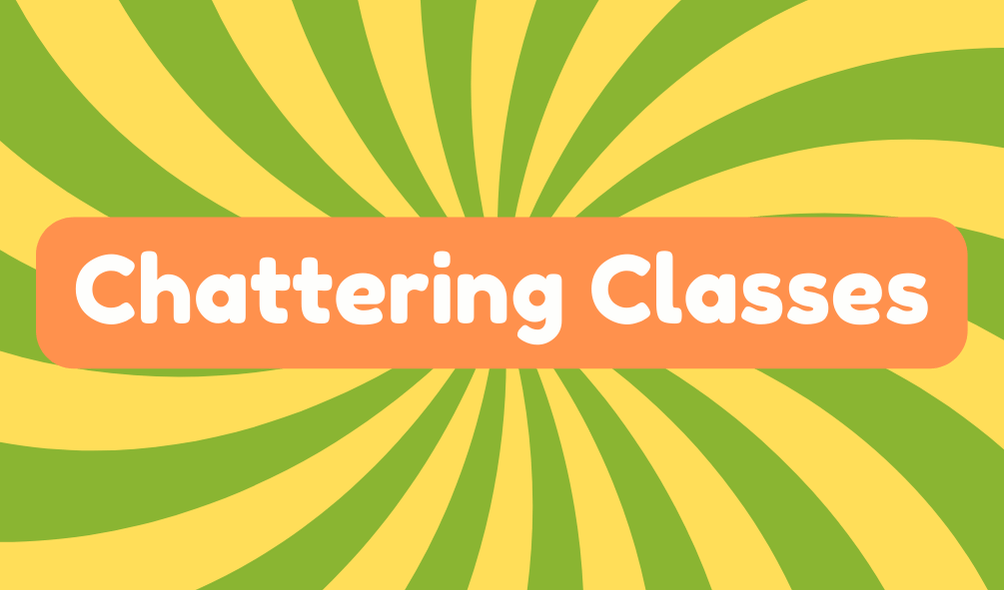The term "chattering classes" refers to a vocal group of educated commentators who often influence public opinion, usually through various media channels. Coined by journalist Frank Johnson in 1980, it reflects the rising trend of superficial discussions in political and social matters. For example, during elections, these voices can overshadow important debates with trivial chatter. Critics argue they lack depth, raising concerns about the quality of public discourse. Despite their influence, it's vital to discern between meaningful commentary and mere noise. To understand their impact further, consider how these ideas resonate in today's polarized landscape.
Synonyms
When discussing the term "chattering classes," you might come across several synonyms that capture similar ideas. These terms reflect the role of individuals who provide social commentary, often without wielding significant influence over public discourse. They reveal a mix of engagement and superficiality that's prevalent today. Here are four synonyms you might find useful:
- Intellectual elite
- Commentariat
- Media pundits
- Cultural critics
Each of these captures a facet of those who analyze and discuss societal issues. While they may contribute to vital discussions, it's important to remember that their insights often come from a distance, lacking direct impact on the events they critique. So, examine their perspectives with a skeptical eye.
Example of Sentences
Examples of sentences about the "chattering classes" can illustrate how this term is used in various contexts. Here are some striking examples you might find enlightening:
- "The chattering classes often amplify their influence over public opinion through social media."
- "In political debates, their class commentary usually overshadows substantive discussions."
- "This election cycle, the chattering classes have been notably divided on key issues."
- "Many feel that the chattering classes lack the depth to engage with serious problems."
These sentences not only showcase the chattering influence of educated individuals but also highlight a critical perspective on their commentary. They remind us that while their voices are loud, the impact is sometimes shallow, leading to a necessary skepticism about their contributions to society's dialogue.
Origin
The term "chattering classes" originated from British journalist Frank Johnson in 1980, who used it to describe a wide array of commentators voicing their opinions on political and social matters. Its historical significance lies in highlighting the anxieties felt during political upheaval, showcasing how public opinion began to take more center stage. This shift marked a changing impact on journalism, as the media started to prioritize voices from these educated commentators. Yet, this rise also sparked criticism—many argue that the discourse often skims the surface without diving into serious analysis. Fundamentally, while the chattering classes contribute to a broader dialogue, they can sometimes dilute important conversations, raising questions about the depth of public engagement.
Collocations
In discussions about the chattering classes, certain collocations often emerge that highlight their characteristics and behaviors. Recognizing these phrases will deepen your understanding of cultural commentary and public discourse. Here are four common collocations:
- Vocal elite – emphasizes their outspoken nature.
- Societal critique – showcases their role in examining social issues.
- Trivial debates – points to the often surface-level discussions they engage in.
- Public outrage – reflects how they sometimes amplify collective sentiments.
These collocations capture how the chattering classes navigate complex ideas, often leading to superficial dialogue. It's important to notice that while they can elevate discussions, they frequently risk diluting meaningful debates, leaving us questioning the real impact of their commentary on society.
How to Use in Everyday Language
Understanding how to incorporate the term "chattering classes" into everyday discussions can enhance your commentary on social and political matters. You can use it to critique how educated individuals engage in popular discourse, often masking shallow opinions behind a veneer of sophistication. For instance, during media coverage of events, you might say, "The chattering classes love to dissect every detail, yet they rarely influence real change." This highlights the gap between their discussion and actual impact. By acknowledging media influence, you can encourage deeper conversations about issues that matter, stressing the need for more substantial insights. Use "chattering classes" when you notice social commentary that prioritizes entertainment over effectiveness, fostering a more critical dialogue in your everyday exchanges.
Why Is It Still Relevant Today?
Though many might argue that public discourse has become increasingly polarized, the concept of "chattering classes" remains highly relevant today. You see, these groups exert significant societal influence through their media commentary, shaping public opinions and debates. They reflect our desire for connection and engagement in political and social discussions, even if their contributions can sometimes lack depth. In a world dominated by rapid news cycles and constant updates, the chattering classes provide a space for dialogue. However, it's vital to recognize the fine line between informative commentary and superficial chatter. By understanding their role, you'll better navigate the evolving landscape of public discourse and appreciate the nuances that come with it.







